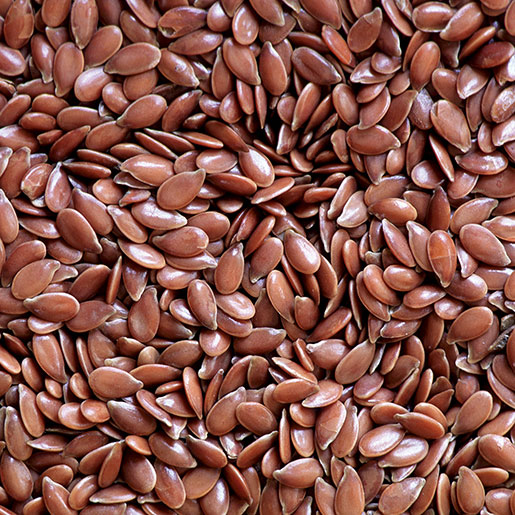Description
One serving of flaxseed provides a good amount of protein, fiber, and omega-3 fatty acids. It may help lower the risk of some cancers, help maintain a healthy weight, and reduce cholesterol and blood pressure.
With its mild, nutty flavor and crisp, crunchy consistency, flaxseed is a versatile ingredient that can enhance the taste and texture of almost any recipe.
One way to use this seed is by mixing it into my morning smoothie. It also makes an excellent addition to pancake batter, homemade veggie burgers, and even overnight oats.
What’s more, it’s loaded with nutrients and linked to numerous benefits.
Here are 9 health benefits of flaxseed that are backed by science, along with some easy ways to increase your intake.
Flaxseed is one of the world’s oldest crops. There are two types, brown and golden, both of which are equally nutritious (1Trusted Source).
Just one serving provides a good amount of protein, fiber, and omega-3 fatty acids, along with several important vitamins and minerals.
One tablespoon (7 grams) of ground flaxseed contains (2Trusted Source):
- Calories: 37
- Carbs: 2 grams
- Fat: 3 grams
- Fiber: 2 grams
- Protein: 1.3 grams
- Thiamine: 10% of the Daily Value (DV)
- Copper: 9% of the DV
- Manganese: 8% of the DV
- Magnesium: 7% of the DV
- Phosphorus: 4% of the DV
- Selenium: 3% of the DV
- Zinc: 3% of the DV
- Vitamin B6: 2% of the DV
- Iron: 2% of the DV
- Folate: 2% of the DV
Flaxseed is particularly high in thiamine, a B vitamin that plays a key role in energy metabolism as well as cell function. It’s also a great source of copper, which is involved in brain development, immune health, and iron metabolism (3Trusted Source, 4Trusted Source).
SUMMARYFlaxseed is a good source of many nutrients, including protein, fiber, omega-3 fatty acids, thiamine, and copper.
Flaxseed is an excellent source of alpha-linolenic acid (ALA), a type of omega-3 fatty acid that’s important for heart health and found primarily in plant foods (5Trusted Source).
ALA is one of the two essential fatty acids that you must obtain from the food you eat since your body doesn’t produce them.
Animal studies suggest that the ALA in flaxseed may help reduce inflammation and prevent cholesterol from being deposited in your heart’s blood vessels (6Trusted Source).
A recent study in 8,866 people tied increased ALA intake to decreased cholesterol levels and a lower risk of ischemic heart disease — which is related to narrowed arteries — and type 2 diabetes (7Trusted Source).
Numerous studies have also linked ALA to a lower risk of stroke. What’s more, one large review of 34 studies even associated increased ALA intake with a decreased risk of dying from heart disease (8Trusted Source, 9Trusted Source, 10).
SUMMARYFlaxseed is rich in ALA, a type of omega-3 fatty acid that may offer numerous benefits for heart health.
Flaxseed is rich in lignans, which are plant compounds that have been studied for their potent cancer-fighting properties. Interestingly, this seed boasts 75–800 times more lignans than other plant foods (6Trusted Source).
Some studies associate flaxseed intake with a lower risk of breast cancer, particularly for postmenopausal women (11Trusted Source).
Animal and test-tube studies also show flaxseed to protect against colorectal, skin, blood, and lung cancer (12Trusted Source, 13Trusted Source, 14Trusted Source, 15Trusted SourceTrusted Source).
Keep in mind that more research is needed in humans.
SUMMARYFlaxseed contains nutrients called lignans that may help decrease cancer growth. Some studies link this food to a lower risk of several types of cancer, but more research is needed.
Just 1 tablespoon (7 grams) of ground flaxseed packs 2 grams of fiber, which is around 5% and 8% of the daily recommended intake for men and women, respectively (2Trusted Source).
What’s more, flaxseed contains two types of fiber — soluble and insoluble — which get fermented by the bacteria in your intestines to support gut health and improve bowel regularity (16Trusted Source).
While soluble fiber absorbs water in your intestines and slows down digestion, which may help regulate blood sugar levels and lower cholesterol, insoluble fiber adds bulk to the stool, which may prevent constipation and promote regular bowel movements (16Trusted Source).
SUMMARYWith so much fiber packed into each tiny seed, flaxseed may help promote regular bowel movements and improve digestive health.
Flaxseed may also help lower cholesterol levels.
According to a 1-month study in people with peripheral artery disease, eating 4 tablespoons (30 grams) of milled flaxseed per day decreased levels of LDL (bad) cholesterol by 15% (17Trusted Source).
A 12-week study in 112 people with high blood pressure had similar findings, reporting that 4 tablespoons (30 grams) of flaxseed per day led to significant reductions in body mass index (BMI), total cholesterol, and blood pressure (18Trusted Source).
These effects may be due to the fiber in flaxseed, which binds to bile salts before being excreted by your body. To replenish these bile salts, cholesterol is pulled from your blood into your liver, resulting in lower levels

Reviews
There are no reviews yet.